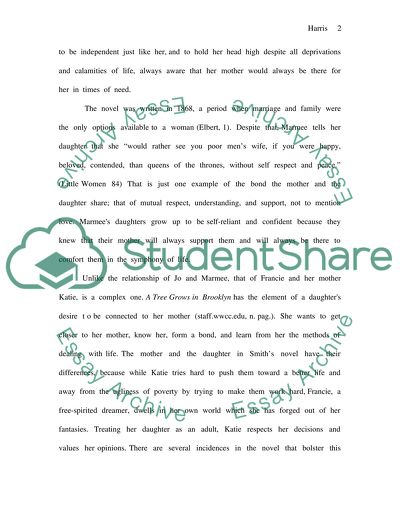Little Women by Louisa May Alcott Book Report/Review. Retrieved from https://studentshare.org/literature/1500067-family-relationship-in-novels
Little Women by Louisa May Alcott Book Report/Review. https://studentshare.org/literature/1500067-family-relationship-in-novels.


